Checkpoints: Moving the Needle
IFC fellows enhance future conflict instruction and training
(The following is the second in a series about the Institute for Future Conflict and its efforts to prepare USAFA cadets for the future fight.)
Like Marvel superheroes banding together to repel a common foe, United States Air Force Academy faculty members, permanent party personnel and the expanding staff of the Institute for Future Conflict are assembling an impressive team of subject-matter experts to help avert global disaster.
Since launching in November 2019, the IFC has leveraged a combination of federal funding and private philanthropy to assist the Academy in better preparing cadets for uncertain technological and battlefield challenges they are likely to face during their careers. To get cadets up to speed on rapidly evolving future conflict scenarios, Lt. Gen. (Ret.) Bradford “B.J.” Shwedo ’87 says it’s been necessary to identify and hire top researchers and IFC fellows who have a grasp on what the future fight may entail.
“Cadets need to learn how to use all the tools in their toolbox,” he says.
For many current faculty and permanent party members, much of their careers have been focused on the Global War on Terror, Gen. Shwedo notes, and not on near-peer competitors, such as Russia and China. Many have limited experience with emerging threats and new warfighting domains, making it crucial to seek out experts who can share their knowledge about expected warfighting trends.
Brig. Gen. Linell Letendre ’96, USAFA’s dean of the faculty, calls it “filling in the gaps and seams” of future conflict expertise on the Academy team. The strengthening partnership with the IFC and its donors has made a huge difference on that front.
“We’ve been able to pull in the right individuals to help,” Gen. Letendre says. Today, the IFC’s influence on future warfare instruction is reaching across all Academy mission elements — academic, military and athletic — to help accelerate the development of innovative warrior-scholars who can succeed in deterring conflict and winning the nation’s wars.
“There was already great work happening at USAFA in terms of future conflict,” says Dr. David Arceneaux, the IFC’s Rossetti Fellow for Future Conflict.
“The IFC now has figured out where we are best able to support what was already happening.”
The staff, donor-supported fellows and active-duty Intermediate Developmental Education fellows assembled within the IFC are making believers out of Academy leadership, cadets and graduates, as well as the Department of Defense writ large.
Gen. Shwedo says he’s pleased with the progress thus far.
“Our main goal is to make sure that the cadets are so well-informed, so ready, so well-trained, and so well-equipped that the bad guys decide not to fight and the cadets don’t have to experience World War III,” he says. “If we don’t make this investment in future conflict today, it could encourage adventurism from a lot of bad guys around the world.”
Prepping for the PRC
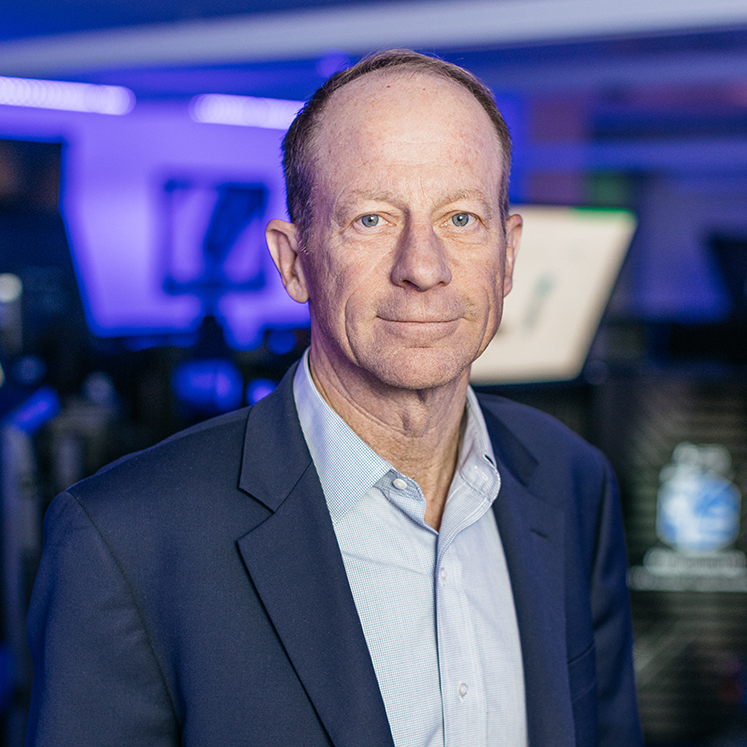
Brig. Gen. (Ret.) David Stilwell ’87 was happily retired in Hawaii when he received a call from his classmate, Gen. Shwedo, who was searching for an expert on China to join the team.
Prior to retirement, Gen. Stilwell served as assistant secretary of state for the Bureau of East Asian and Pacific Affairs. He knows the People’s Republic of China government well.
“It seemed like a good fit,” he says of the job offer. “So, I left my family and my dog in Hawaii to come here to do what I can to help the Academy’s curriculum and this organization catch up with the modern, real world.”
Gen. Stilwell serves as the Fox Fellow for Future Pacing Threats and teaches Mandarin in USAFA’s Department of Foreign Languages. Sprinkled throughout his instruction, however, is information about the Chinese Communist Party and the threat it poses to the free world.
“Communism seems like a benign thing,” he explains. “I really want to make sure cadets understand the reality of the PRC, which I discovered when I first arrived in Beijing in 2011 as a defense attaché.”
Gen. Stilwell’s overarching goal is to teach cadets how to process information and discern fact from fiction.
“My real focus is to help cadets think about thinking, better understand how their brain works and how disinformation is really seriously undermining unity and stability in this country,” he says. “It’s very dangerous.”
He reports the PRC is adept at manipulating the digital world so that communism is not viewed as an existential threat.
“It all comes down to being a healthy skeptic,” he explains. “When you see something written, ask yourself if there’s more to that story. The PRC has full access to the American digital world, and they’re telling their story. All I want to do is tell our story in the same way and let people decide for themselves.”
Logistics Focus
Lt. Gen. (Ret.) Sam Barrett ’88 joined the IFC team as a logistics expert after retiring a year ago as director of logistics on the Joint Staff.
Understanding the importance of logistics to any conflict, Gen. Shwedo reached out to his former Falcon football teammate for help.
“Logistics is such a linchpin to anything our nation does, whether it’s projecting power or effective military operations,” Gen. Barrett says. “For many years, we underappreciated and undervalued logistics. But there was an increased awareness of logistics coming out of COVID.”
Gen. Barrett is presently working with the Department of Management on the development of a new logistics minor.
“In one year, it has gone from zero to being the second largest minor at the Air Force Academy,” he reports. “I think it shows the cadets understand this is an important field for the future.”
Gen. Barrett says the focus on future conflict across the entire Academy has been impressive to witness.
“The IFC and the Academy are exposing cadets to the future to a higher degree than I ever experienced at the Air Force Academy,” he says. “It’s a step above what I remember in the 1980s.”
Preparedness
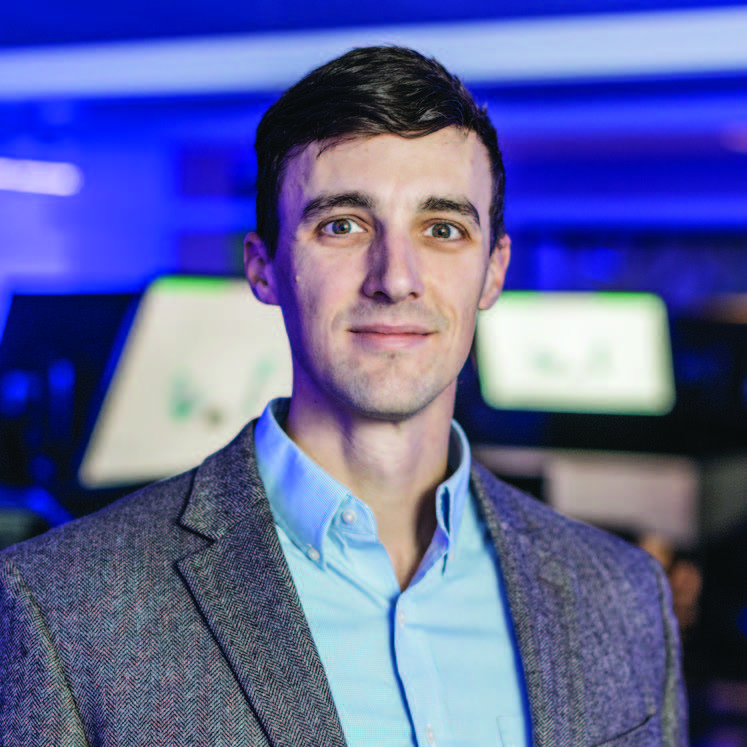
Dr. Arceneaux spends much of his time on curriculum development and the review of training scenarios. After a career as an academic, Arceneaux says he was drawn to the IFC role as a way to personally advance national security.
“If I only write academic papers for academics to consume, it’s not really doing a whole lot to help us,” he says. “This was an opportunity for me to come over to the Air Force Academy and work on advancing a mission in which I believe deeply … actually improving U.S. foreign policy preparedness rather than only engaging in academic debates.”
Due to his background in nuclear weapons strategy and operations, Arceneaux is helping create a strategic stability course, aimed at avoiding any escalation from conventional conflict to nuclear war.
Among Arceneaux’s responsibilities, along with Gen. Barrett, is coordinating realistic culminating exercises for Firsties. “They’re forced to plan, brief, execute and debrief their scenarios,” he explains. The IFC will soon be working with the Preparatory School, Arceneaux reports, offering a lecture series to preppies to get them thinking about future conflict as well. Arceneaux is also assisting the Athletic Department in hiring a human performance optimization postdoctoral fellow to help equip cadets both physically and mentally.
“This is not only the coolest job I’ve had; it’s probably the coolest job I will ever have,” he says. “This is an awesome place to be for research, teaching and training. I get to do all of the above every day, and it’s just wonderful.”
Curriculum Changes
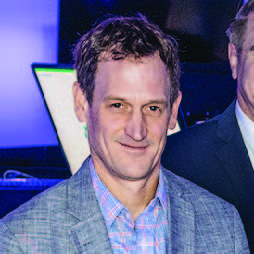
Since joining the IFC as associate director last summer, Dr. Greg Johnsen has been encouraging cadets to think more broadly about the changing face of war.
An expert on the Middle East, Johnsen previously worked for the United Nations Security Council focusing on Yemen and Syria. He later reported for BuzzFeed as a national security reporter, winning a Peabody Award for an investigation into the wording of the Use of Military Force Act. Most recently, he worked for the Joint Staff in the Office of Irregular Warfare and Competition.
Johnsen decided to join the IFC and help inspire the next generation of military leaders in their quest to understand the future fight.
“It seemed like a good opportunity to help build something that was just starting,” he says.
Johnsen is currently helping the dean of the faculty build a future conflict minor. The initial course in that minor, Strategic Competition, taught by Johnsen, is being offered for the first time this semester.
“We capped the course at 15 students, and we’re already at full capacity,” he notes. “We have a number of students on the waiting list.”
Another course, Adversary Doctrine, will be offered for the first time next year.
“This course follows the model of the National Defense Strategy, where a third of the course is devoted to the PRC, a third is devoted to Russian doctrine, and the last third of the course is split between North Korea, Iran, Al Qaeda, ISIS and violent extremist organizations,” he explains.
A third course, Fiction and Future Conflict, will require cadets to read fictional accounts of how warfare may evolve.
“We’ll use fiction to teach them how to see the world from a different perspective,” Johnsen says. “It’s a helpful tool to expand their mindset and sharpen their critical thinking skills.”
To round out the minor, cadets will choose from electives offered within the Physics, Law, History, Military and Strategic Studies and English departments, as well as two courses taught by IFC fellows.
The capstone to the minor is the “Jedi Course,” where cadets will meet in a classified setting to work on real-world problems for the Air Force, the Space Force and beyond.
In addition to his curriculum development work, Johnsen is helping launch an IFC website that will publish scholarly commentaries and analysis pieces related to future conflict. He expects the website to go live in March or April.
“We’re hoping to tap into academic, military and policy circles,” he explains.“
We think that intersection of those three will help us have a really robust and well-informed website, as well as give voice to minority opinions that can push back against conventional wisdom.”
Johnsen is also helping promote writing contests hosted by the National Security Strategic Studies Partnership that are open to students from five Front Range universities — USAFA, the University of Colorado-Colorado Springs, the University of Denver, Colorado State University and the University of Colorado at Boulder. The first is an essay contest focused on lessons the People’s Republic of China is learning from the war in Ukraine. The best three essays will be published on the IFC website, with the contest winner receiving an all-expenses-paid trip to the Pentagon to brief Lt. Gen. Dagvin Anderson, director for Joint Force Development, J7.
The second contest is for fiction writing, requiring students to envision wartime in 2035. The top three stories will be published in Icarus, USAFA’s student-run literary journal.
“We’re forcing cadets to wrestle with some of the questions that are waiting for them once they commission as second lieutenants,” Johnsen explains. “At the IFC, we want to make sure that while we’re preparing for the threat and the adversaries that are known today, we’re also producing cadets who are flexible-minded enough to adjust to the changes that will inevitably happen throughout their career.”
Arctic Front
An IDE fellow and instructor in the Department of Management, Lt. Col. Kristen Heiserman brings her expertise on homeland defense to the team.
She’s a former speechwriter for NORAD and NORTHCOM and has a particular interest in policies related to the Arctic.
Her current research focuses on Arctic domain awareness.
“I’ve really homed in on starting the conversation between the National Oceanic and Atmospheric Administration and the Department of Defense,” she says.
“This partnership is supposed to already be in play, but it isn’t. The research has led to some really good things, one of which is a liaison officer at NORTHCOM between NOAA and the combatant command.”
Heiserman says that connective tissue between the agency and the DOD will be important if conflict ever erupts in the Arctic. Apart from her research, Heiserman is also teaching classes in USAFA’s Department of Management.
“Coming from Special Operations to an academic setting was quite a learning curve, but I’ve been able to share my experiences from the operational Air Force and get cadets excited about their future,” she says.
Heiserman says she’s thankful for the opportunity to help get the IFC established.
“I can’t wait to see what the IFC is going to look like in a year or two,” she says. “The institute is actively taking on wicked Department of Defense problems.”
Space Assets
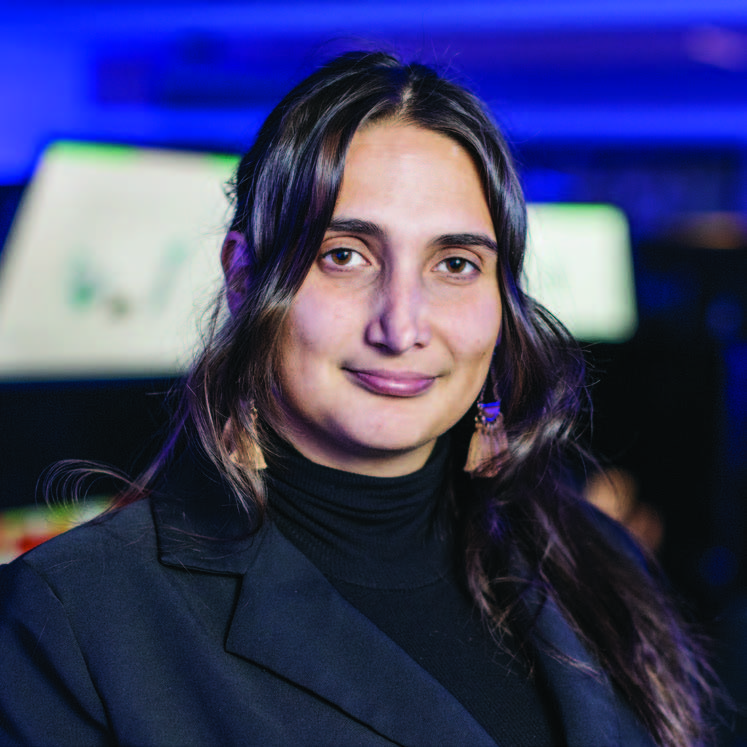
Dr. Madison Walker, an IFC space policy postdoctoral fellow, is teaching a core law class and space policy courses within USAFA’s Department of Political Science.
Prior to joining the IFC team, Walker worked for Astroscale, a commercial space debris removal company devoted to the safe and sustainable development of space. She helped the company navigate U.S. space policies and regulations.
Her background is key to her research on space-related topics. One topic is focused on potential U.S. responses to the jamming, spoofing and blinding of critical satellites. A second topic surrounds space debris and which governmental departments or agencies should be responsible for addressing the growing problem.
“Space debris is a national security issue,” she says. “We need to create active debris removal technology in order to ensure the protection of our assets and access to space.”
Regional Conflicts
Dr. Anthony Tingle, IFC program director, oversees research on regional conflict and military technology including AI, cyber and biotechnology. His work focuses on the future of war, the future U.S. defense priorities and the future of international security.
A public policy scholar and West Point graduate, Tingle is an expert on the Ukraine conflict and has consulted with the Ukrainian military throughout the war. He also specializes in ballistic missile defense, space combat, autonomous weapons and hypersonic projectiles.
New Model
An IDE fellow and instructor within the Department of Political Science, Maj. Gary Davenport is a Space Force officer helping inform cadets about the future fight in space.
Davenport is teaching an American government class along with a space policy course. He’s developed a war game for that class, called Space Life, that helped cadets envision the challenges of having so many nations with disparate goals involved in space today.
Davenport’s research is looking at the possibility of adapting the already-established Civil Reserve Air Fleet concept to the space domain. Through his research, Davenport hopes to develop the Commercial Augmentation Reserve Fleet, forging agreements with commercial space companies to help in times of emergency.
“My research is looking at more than just moving people and cargo with rockets,” he explains. “It’s looking at space domain awareness; it’s looking at active orbital debris and removal mitigation; it’s looking at astronaut rescue. I think it’s going to be a good model for us to implement.”
Davenport also is helping to envision a time when mining operations on the moon and on nearby asteroids become big business. He expects the extracted water, gases and minerals will be remotely stored for use in future deepspace missions or space conflicts.
“We need to start thinking about this now because it takes a long time to get such programs spun up,” he suggests. “If we don’t, then we’re allowing our enemies that first move or advantage. That’s not acceptable to me — we need to be first.”
Human-Agent Teaming
Maj. Melissa McClain ’09 has returned to her alma mater as an IDE fellow. The two-year assignment allows her to teach and conduct research simultaneously.
Her current research focuses on human-agent teaming, specifically related to artificial intelligence development.
“Often, we’ve seen humans either micromanage an AI agent in some capacity, which takes away from the real capability that the AI agent could provide,” she explains, “or they just kind of discard it and try to work around the AI agent, which isn’t helpful, either.”
The goal is to help military personnel take full advantage of what the AI assistant offers, McClain says. Apart from the research, McClain teaches in the Department of Military and Strategic Studies, although she collaborates with the Systems Engineering and Behavioral Science departments as well.
“I think that’s one of the huge opportunities for the IFC … helping departments work together,” she says.
“So much of the future fight will require a cross-discipline approach … to an extreme extent.”
In April 2023, McClain helped launch the Information Warfare Club for cadets.
The club meets monthly and has about 120 active members. Club members split into teams of 10 to 15 cadets, each working on an information operations project.
Rapid Development
Maj. Isaiah Harp joined the team as an IDE fellow last summer. A fifth-generation fighter and test pilot, Harp shares his operational experiences in the Pacific theater with cadets in an Aero 456 class.
“It’s kind of a mini test pilot school with only one airplane,” he says. “They learn all the techniques you can fly to gather data about an airplane. It’s a pretty cool class.”
Additionally, Harp is conducting research speeding up Department of Defense test and acquisitions timelines so that collaborative, autonomous combat aircraft can be brought online quickly within the United States Indo-Pacific Command.
“My research focuses on the test aspect of that,” he reports. “We need a shift in mindset about how we accept risk — both technical risk and safety risk — to ensure that we can field relevant weapons systems in a timeline to compete with the PRC.”
He’s working closely with researchers and officials at the Air Force Research Laboratory, Test Pilot School, Weapons School, Artificial Intelligence Accelerator, program offices and operational test community to forge a path forward.
Donor Support
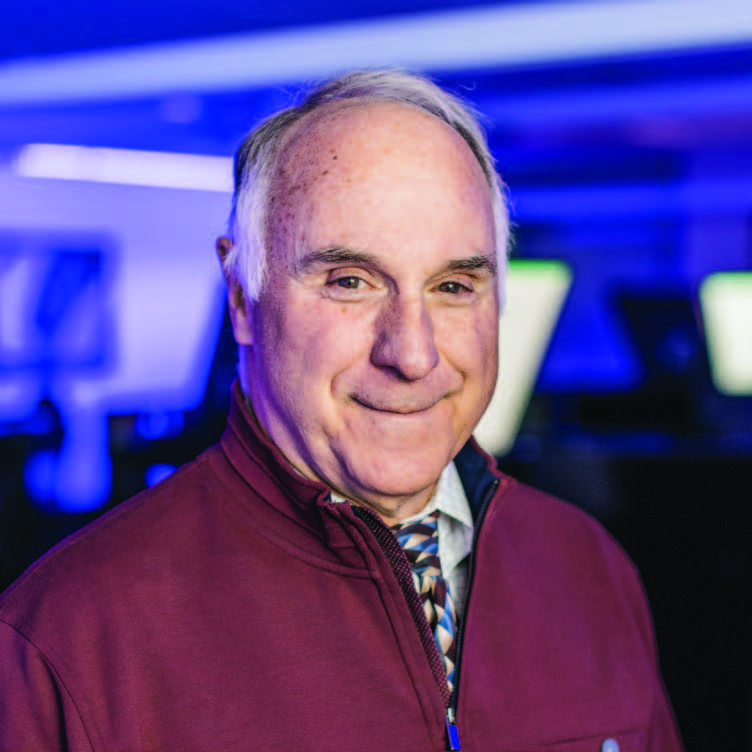
Maj. Gen. (Ret.) David Scott ’78 serves as the IFC’s liaison between the Air Force Academy Foundation and the Academy.
He’s focused on finding individuals with varied expertise who enhance future conflict instruction and training.
He says the support of graduate and corporate donors is key to the IFC’s continued growth.
“Right now, we’re about a 50-50 organization,” he says. “For the skill sets that we need, we might not be able to get them at government rates. Our partnership with the Air Force Academy Foundation helps us get the right folks and be able to afford them.”
Gen. Scott says he’s thrilled to be giving back to his alma mater that set him up for an impactful career in the military and beyond.
“I’m trying to pay that forward to these young men and women to enable them to have the same opportunities,” he says. “We’re helping better prepare them for when they step out into active duty and understand the threats that are out there. The world has changed over the past 30 years, and the Academy needs to change with it.”
In addition to his liaison role, Gen. Scott is a regular guest speaker in an emerging technology course. He draws on his years working with Raytheon to share about hypersonics, artificial intelligence, autonomy and more.
“We need to make sure that we’re tied with or better than some of our adversaries when it comes to new capabilities,” he suggests.

